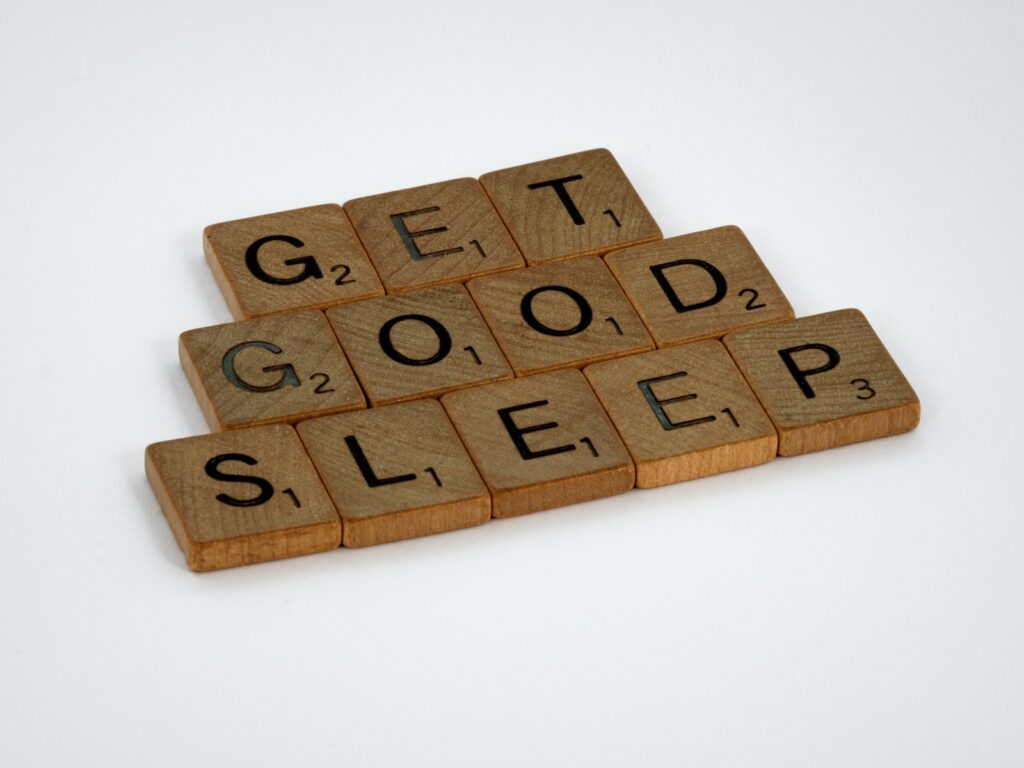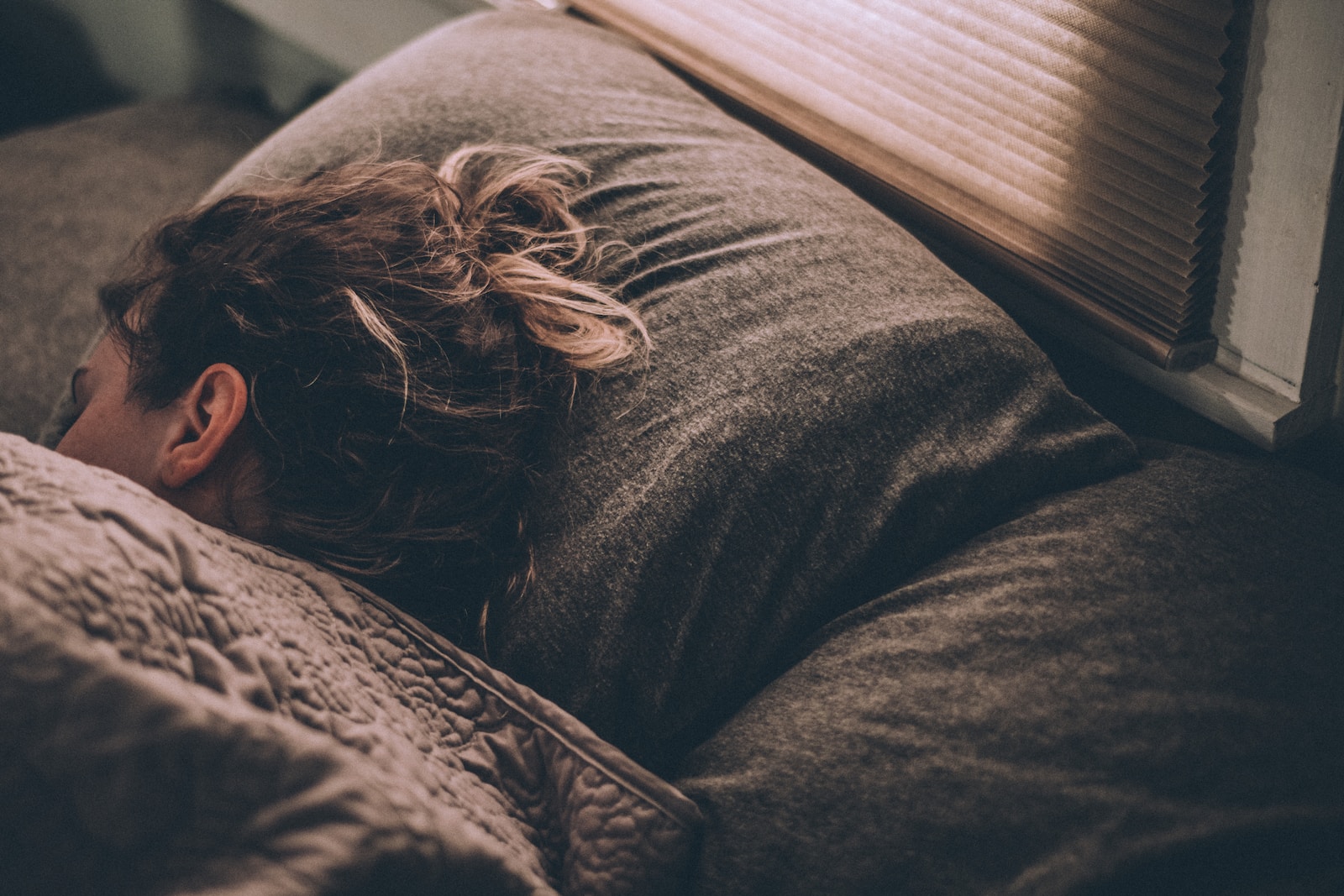The Role of Sleep in Muscle Recovery and Growth
Welcome to our blog post on the importance of sleep in muscle recovery and growth – a subject that is often overlooked but essential for athletes, fitness enthusiasts, and anyone looking to build lean muscle mass. If you’re someone who loves challenging workouts and pushing yourself to new limits, then you know how integral rest days are in your regimen. But did you also know that adequate sleep plays a crucial role in optimizing your training efforts?
In this article, we’ll explore the science behind why sleep is necessary for muscle repair and growth and dig into some actionable tips for getting better quality shut-eye so that you can achieve your fitness goals faster than ever before!
What is the Role of Sleep in Muscle Recovery and Growth?

Sleep is essential for muscle recovery and growth. A study published in the Journal of Applied Physiology found that muscles recover faster when they get a good night’s sleep. The study showed that muscles grow more slowly when there’s a lack of sleep. Additionally, research has shown that getting enough sleep can help improve moods and reduce anxiety symptoms.
Sleep helps to restore muscle glycogen levels, which allows muscles to rebound from workouts better. It also helps to reduce inflammation and soreness after an intense workout. As mentioned earlier, getting enough sleep can also help improve moods and reduce anxiety symptoms. It has been shown that getting a good night’s sleep can boost cognitive performance, which is key for learning new information or taking on new tasks.
The Benefits of Sleep for Muscle Recovery and Growth
In order to maximize muscle growth and recovery, it is necessary to get enough sleep. When you are sleep deprived, your body decreases the production of growth hormone, which is important for muscle growth. Additionally, when you don’t get enough sleep, you are also less able to perform optimally during workouts. Studies have shown that inadequate sleep can lead to increased inflammation in the body, which is bad for muscle growth. In fact, one study found that those who slept 6 hours or less per night had a 40% decrease in overall strength index scores than those who slept 7-8 hours per night.
Furthermore, insufficient sleep has been linked with a number of other health problems. For example, people who don’t get enough sleep are more likely to develop obesity or diabetes. And chronic lack of sleep has been linked with an increased risk of death from any cause. So not only does lack of sleep reduce your ability to build muscle mass, but it also increases your risk of developing other health problems as well.
So what should you do if you find yourself struggling to get enough shut-eye? First and foremost, make sure that you are getting at least 8 hours of sleep every night. If that isn’t possible for you then try to limit your time spent sleeping to between 7 and 8 hours each night. If that still isn’t possible for you then make sure to schedule regular bedtime rituals – like reading books or spending time with your pets – to help you get comfortable and relaxed before bed. And lastly, make sure that you are following a healthy diet and exercising regularly – both of which will help you get the sleep that you need to maximize muscle growth and recovery.
Why We Need More Rest
Rest is vital for muscle recovery and growth. When you’re sleeping, your body is able to adequately repair and rebuild muscles. The National Sleep Foundation recommends that adults get 7-8 hours of sleep a night to help improve overall mental health, physical health and performance. In addition to helping you recover from workouts, getting enough rest also helps prevent injuries.
Research has shown that one of the major benefits of sleep is its ability to regulate moods and emotions. When you’re feeling stressed or anxious, inadequate sleep can make those feelings even worse. Likewise, getting a good amount of sleep can boost your mood and improve your overall outlook on life.
Another benefit of getting a good night’s sleep is that it improves cognitive function. Studies have shown that unemployed adults who get enough sleep tend to have better memories and better recall skills than those who don’t get enough sleep. Furthermore, people who regularly get plenty of quality shut-eye are also less likely to develop Alzheimer’s disease or dementia in later life.
Getting a good night’s sleep isn’t easy – but it’s worth it! By taking care of yourself physically and mentally, you can maximize your potential both during normal days and during any sudden bursts of activity that may come up unexpectedly (like during an intense workout).
How Much Sleep Do You Need?
Humans need between 7 and 8 hours of sleep on a daily basis, with the average person needing about 7.5 hours. While many people believe that they can get by on less sleep, this is not always the case. Not getting enough sleep can have serious consequences for both your physical and mental health.
Physical consequences of lack of sleep can include decreased strength, agility, and endurance; increased inflammation; and changes in mood and cognition. Mental health problems linked to insufficient sleep include addiction, depression, anxiety disorders, and other stress-related illnesses.
Unfortunately, many people do not get the necessary amount of sleep they need because of the consequences of modern society or work schedules. This is especially true for young adults who are struggling to find their way in life and fend off the effects of peer pressure. However, there are ways to get more restful sleep no matter what your situation may be.
One approach is to set realistic goals for how much sleep you want to get each night and then make sure you actually allow yourself that time. Taking a break during the day to nap or go for a long walk can also help you reach your recommended amount of sleep. And finally, try some natural remedies like supplements or herbal teas that have been known to promote sound sleeping habits in previous studies.
The Importance of a Good sleep Schedule
Sleep deprivation has been linked to impairments in cognitive performance, cardiovascular health, and hormonal balance. In fact, chronic sleep deprivation can lead to alterations in gene expression, leading to muscle loss and inflammation. When it comes to muscle recovery, a good sleep schedule is key!
Sleep helps the body repair and regenerate tissues. It also helps the body develop new cells, removes toxins from the bloodstream, reduces inflammation, and regulates blood sugar levels. These are just a few reasons why getting a good night’s sleep is so important for muscle growth and recovery.
When you don’t get enough sleep, your muscles can become less effective at recovering from exercise. During arduous workout sessions or chronic stressors such as injuries or chronic pain, inadequate sleep can lead to decreases in muscle protein synthesis (MPS) – something that is needed for maximal growth and strength gains. In addition, insufficient sleep interferes with the natural secretion of testosterone which canagonize muscle growth Additionally decreased concentrations of muscle glycogen leads to fatigue during workouts which further impairs MPS[9].
One study found that when subjects exercised vigorously for an hour after being deprived of rest for six hours, their muscles lost up to 50% more water than those who had slept overnight[10]. This was likely due to reduced rates of MPS coupled with an increased production of lactate – both markers of cortisol stress response[11]. Cortisol is responsible for many negative effects on bodily functions such as impairments in fat loss and muscle growth.
A good sleep schedule is important for maximizing muscle growth and recovery. Make sure to get enough sleep each night to give your muscles the energy they need to grow!
Conclusion
When you work out, muscle growth and recovery are two main factors that go into play. However, proper sleep is also an essential part of the equation. Lack of sleep can seriously inhibit your ability to recover from exercise, which could potentially lead to decreased muscle growth and a reduced capacity for bodybuilding progress. So make sure you get enough shut-eye—not only will it help promote muscle growth and repair, but it’ll also make you look good on the social media scale!





